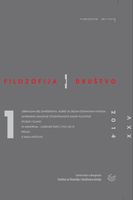O razlici između Dijemove i Kvajnove holističke teze
On the Difference Between Duhem and Quine’s Theses
Author(s): Aleksandra ZorićSubject(s): Philosophy
Published by: Institut za filozofiju i društvenu teoriju
Keywords: Duhem’s thesis; holism; Quine’s thesis; underdetermination.
Summary/Abstract: Although there are numerous similarities between Duhem and Quine, there are strong arguments which suggest that what can be isolated as Quine’s thesis would be unacceptable to Duhem. On the other hand, they both share Duhem’s holistic thesis: empirical statements are interconnected in such a way that they cannot be confirmed or refuted taken in isolation. Since Quine’s holism is more radical, as we shall show, his thesis claims that we can always keep a statement by making necessary adjustments somewhere else in the system. We will try to show that only the first thesis can be rightfully ascribed to Duhem, that these two thesis are not identical, and that they are both different from what is usually called the theses of underdetermination. As we shall see, neither of them speaks about the possibility of empirically equivalent theories. They are, first and foremost, holistic theses which, under certain additional assumptions, have the thesis of underdetermination as their consequence.
Journal: Filozofija i društvo
- Issue Year: 25/2014
- Issue No: 1
- Page Range: 193-207
- Page Count: 15
- Language: Serbian

